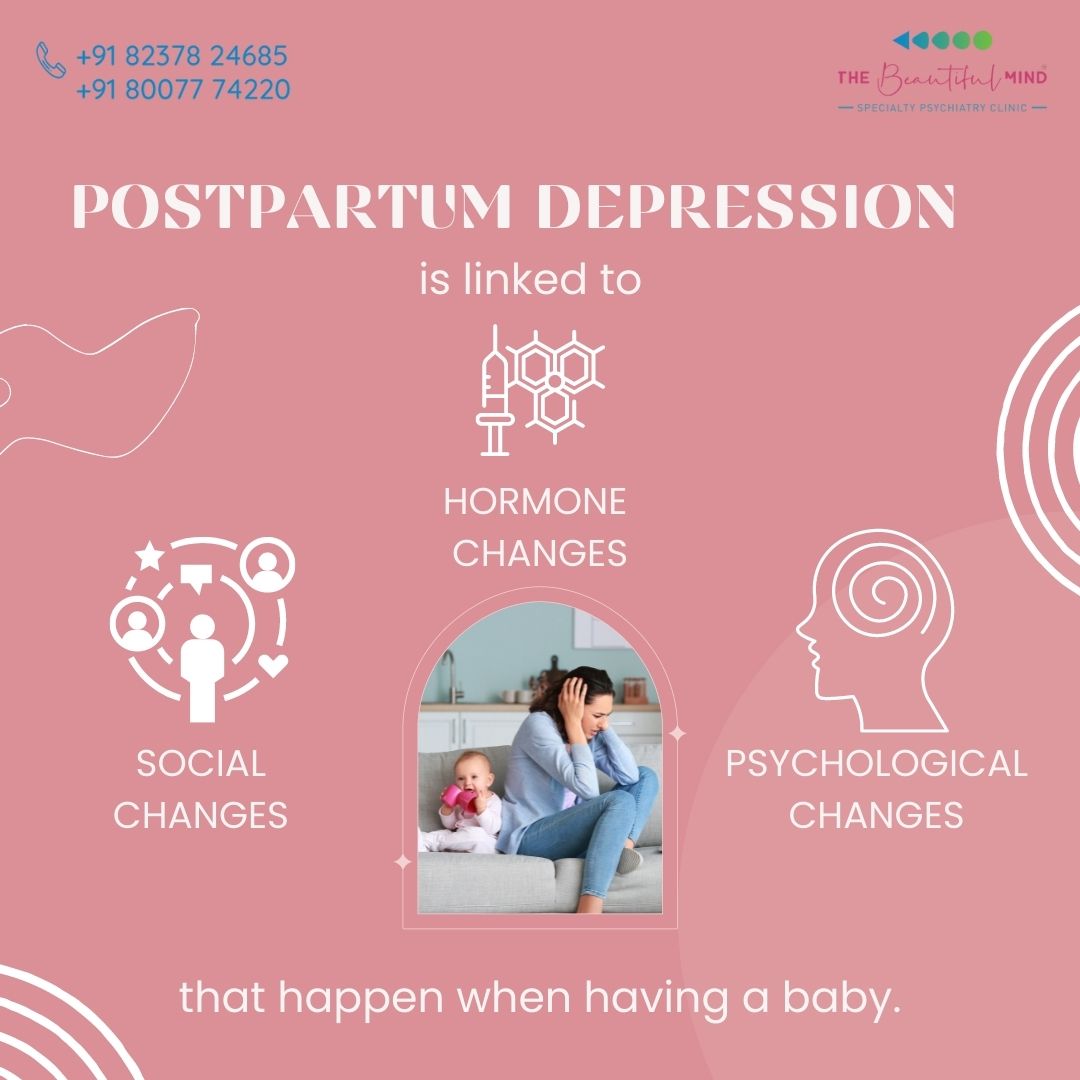
Postpartum or perinatal depression is a form of depression that occurs following the birth of a baby. It’s a relatively common but serious medical condition, affecting up to 1 in 7 new mothers after birth. Postpartum depression can make you feel empty, emotionless, and sad. It can cause changes in mood, exhaustion, and a general sense of hopelessness for a long time after birth.
Postpartum depression can affect people of all gender and all types of parents and their partners, be they birth, surrogate, or adoptive. There’s no singular ‘normal’ way to be a parent.
Feelings of postpartum and perinatal depression are always valid and are never your fault.
Postpartum depression goes well beyond the fews days of 'baby blues', lasting for weeks after giving birth. Its symptoms can be severe and interfere with your ability to function.
Symptoms of postpartum depression can vary from person to person and even from day to day. While symptoms can develop anytime after childbirth, they often start within 1 to 3 weeks after having a baby.
Postpartum depression can make one feel disconnected from the baby. You may feel as though you don’t love your baby. These feelings are not your fault.
Other indications of postpartum depression include:
- feeling sad or crying a lot
- feeling overwhelmed
- having thoughts of hurting the baby or yourself
- not having an interest in the baby
- having no energy or motivation
- feeling worthless, guilty, or like you are a bad parent
- sleeping too much or too little
- change in relationship with food
- feeling anxious
- having chronic headaches, aches, pains, or stomach problems
But postpartum depression doesn’t mean you’re a bad parent, and it’s not your fault.
Treatment for postpartum depression can include medication, certain forms of therapy, and support groups. Typically, a combination of medication and therapy is the most effective treatment.